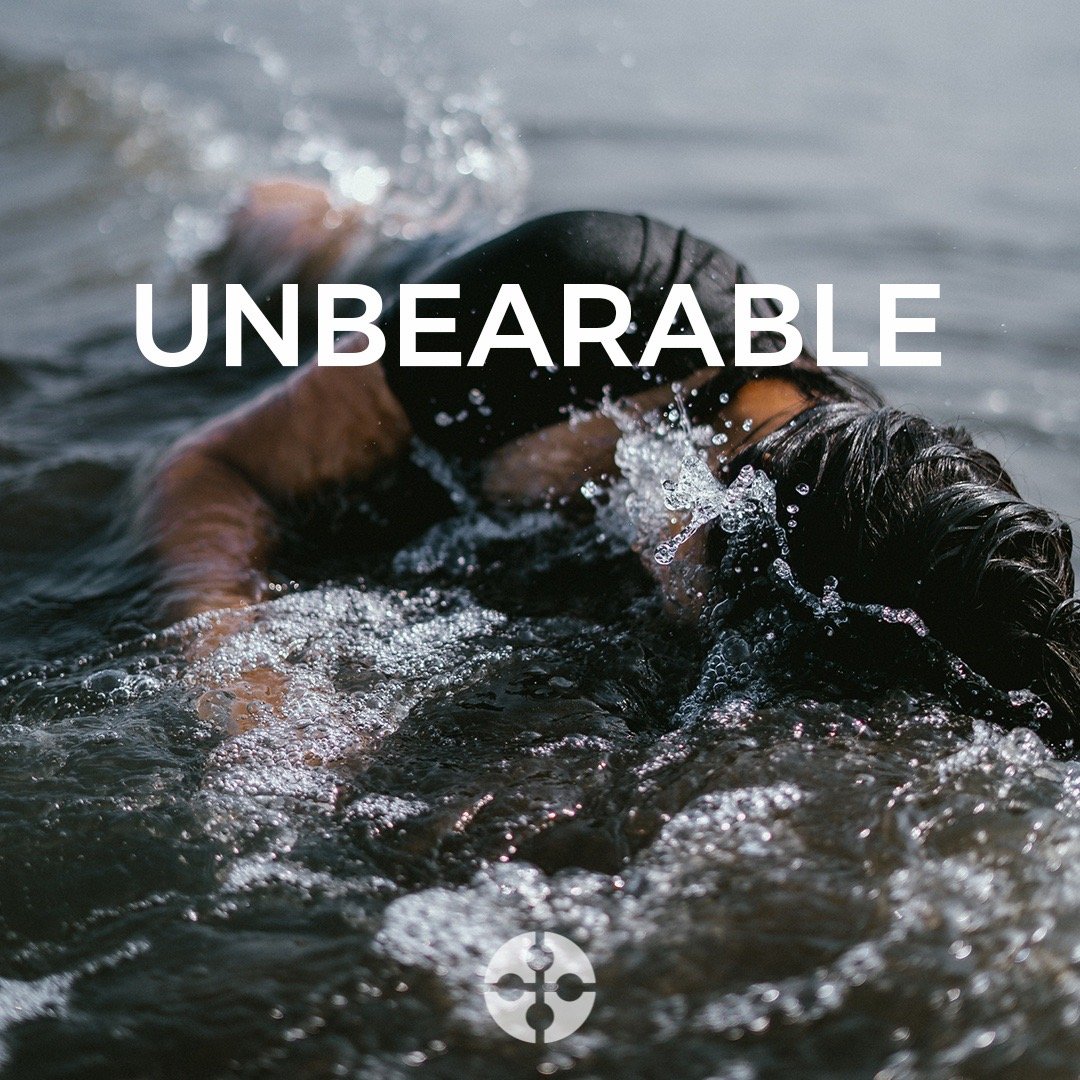Unbearable
Somewhere along the way, we’ve heard the phrase, “God won’t give you more than you can bear.”
At face value, this kind of advice sounds good, but it’s not only unhelpful, it’s a lie.
Often said by well-meaning individuals in the heat of a trial, the unintended message behind this phrase is that you should be able to handle this. Furthermore, it implies that if you “can’t handle it” then something must be wrong with you.
What was intended as an encouragement can unintentionally serve to weigh us down with shame and further isolate us as our head slips below the waterline of despair.
For anyone who has navigated depression, burnout, or “the dark night of the soul,” you know what it feels like to come to the very end of yourself… to wonder if it’s even worth continuing on. What hope does God offer us when the pain is more than we can bear?
The good news for us today comes from someone familiar with the school of suffering, the Apostle Paul. The encouragement he offers us is this:
When we come to the end of ourselves, we learn reliance on God.
In 2 Corinthians 1:8-10, Paul doesn’t mince words as he describes hitting rock bottom…
“We do not want you to be uninformed, brothers and sisters, about the troubles we experienced in the province of Asia. We were under great pressure, far beyond our ability to endure, so that we despaired of life itself. Indeed, we felt we had received the sentence of death. But this happened that we might not rely on ourselves but on God, who raises the dead. He has delivered us from such a deadly peril, and he will deliver us again. On him we have set our hope that he will continue to deliver us,”
Don’t miss this. Paul, Apostle and author of the majority of our New Testament, demonstrates that if you’ve ever felt like giving up on life, you’re not alone.
The invitation before us isn’t to somehow pretend things aren’t as bad as they seem or to pull ourselves up by our own bootstraps and try harder. The invitation is to release those things that are beyond our ability to endure and to rely on the God who raises the dead.
So often in our pain and disillusionment, it’s easy to feel that what we are experiencing is pointless. Pain always feels meaningless, and cruel, and can lead to despair. But the hope we see in this passage is that God can infuse our pain with meaning and purpose as we turn from trusting in our ability to control our lives to relying on Him. Just because we can’t see a way that God could use or redeem our pain, doesn’t mean that there isn’t one.
The kind of reliance Paul is talking about here isn’t just a one-time thing, it’s moment by moment. Interestingly enough, when we go through this kind of pain, it reveals the need for Him that we’ve had all along that’s often sedated by our sense of self-sufficiency. Simply put: We don’t know that Jesus is all we need until He is all we have.
A few questions for reflection:
What challenges are you trying to face in your own strength?
What might reliance on God look like in the midst of those circumstances?
Paul says, “This happened that we might not rely on ourselves but on God, who raises the dead.” What things have died within us that perhaps God longs to resurrect?
As we grow in our reliance upon God, it develops a hope within us where we can say along with Paul: “He has delivered us from such a deadly peril, and he will deliver us again. On him we have set our hope that he will continue to deliver us…”
#ChristianSpiritualFormation #ChristianLiving #ChristianLife #FaithInspiration #grow #Ignatius #Faith #Desolation #DeeperWalk #FaithJourney #SpiritualGrowth #Spiritualdirection #deeperwalksd #wellness #griefsupport #spiritualformation #anxietyhelp #soulcare

